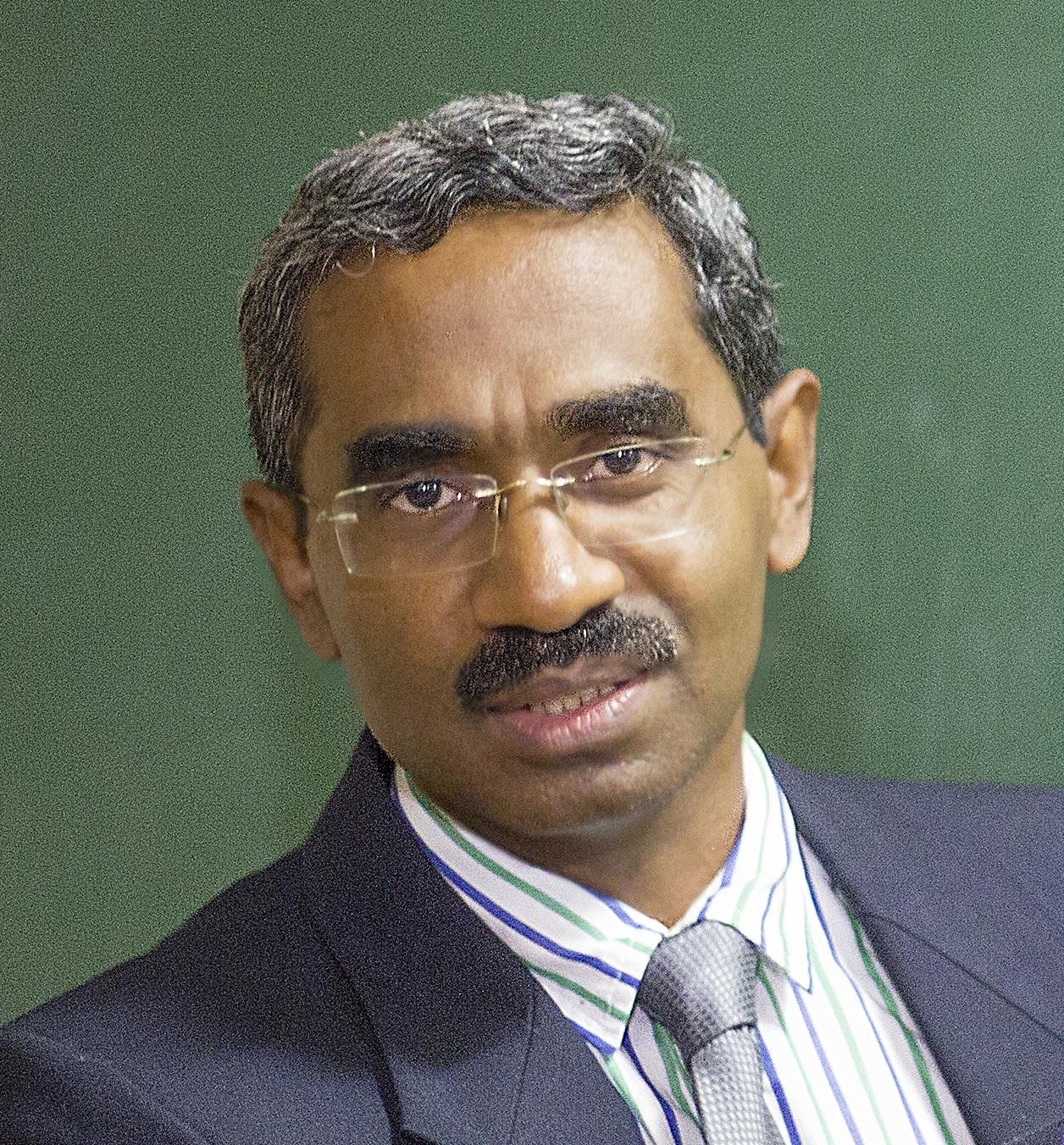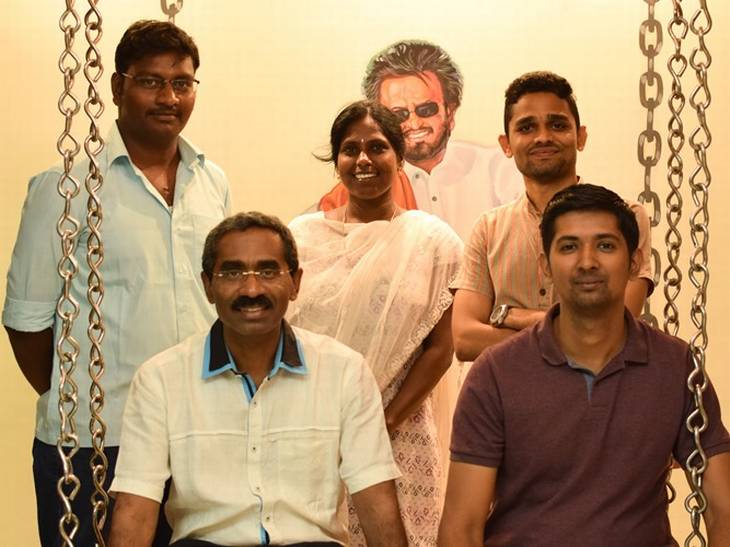Thillai Rajan: A Professor and CEO Helping Young Businesses Navigate through Early Entrepreneurship Challenges
Thillai Rajan is a Professor at IIT Madras, Associate at Harvard University, Co-Founder at YNOS Venture Engine and GEONOMICS Research & Tech. In an exclusive interaction with Deepshikha Singh, Managing Editor, Higher Education Review magazine, Prof Thillai Rajan highlights on his journey from being a professor to an entrepreneur and how millenials should approach entrepreneurship.

- From being a Professor at IIT to an Entrepreneur today, tell us about your journey so far. What motivated you towards entrepreneurship?
To start with, I continue to be a Professor and Entrepreneurship is another hat that I wear. At IIT Madras, we have a very supportive policy that encourages faculty members of the institute to start ventures, thereby enabling commercialization of their research findings. Research scholars and students play a very important role in co-founding such ventures along with faculty members. Before entering academia, when I was in the industry as a venture fund manager, I had a chance to closely work with entrepreneurs. Subsequently, in a large IT services company, I got the opportunity to play a key role in a new initiative that they were starting. And when I became a faculty, I continued in these subjects where I had professional experience. I used to teach courses on start-ups. A substantial part of my research was on start-ups and ventures. By 2017, our annual India Venture Capital & Private Equity Report series had begun to get wide acclaim. Our research findings provided solid insights on the trends and drivers in the Indian Venture Capital industry.
As they say, entrepreneurial energy is highly infectious. Given my initial work with entrepreneurs as a venture fund manager and my subsequent academic, policy cum practice work in the start-up sector, it was just question of time before I was infected by the entrepreneurship bug. In fact, when I informed one of the distinguished leaders of the Indian venture capital industry about my decision, he responded: “Looks like the Doctor got infected with the virus!”
The potential to create impact at scale was the major driver behind my decision to venture into entrepreneurship. Obviously, impact could be created through multiple means – through teaching, publication in leading journals, policy influencing OPEDs, and so on. In this case, I felt that the biggest impact could be achieved by pursuing the path of entrepreneurship.
Entrepreneurship provides another dimension of learning, which cannot be taught in the classroom; students who dabble in entrepreneurship emerge as well-rounded individuals and have their ears to the ground
- What are the major challenges encountered by you during the initial days of your entrepreneurial venture?
There are several, of which I would like to highlight a few here: (1) A major challenge has been to put together the founding team, comprising of likeminded people but with complementary strengths; (2) Identify the key members of the management team who believe in the vision of the founding team and are willing to take the risk along with the founders; (3) Institutionalising a high performance culture that unites the entire team; and (4) Giving shape to the thought  and vision that I had conceptualized for YNOS – in terms of mission, vision and objectives.
and vision that I had conceptualized for YNOS – in terms of mission, vision and objectives.
- Do you think that the students of current generations should prefer entrepreneurship rather than heavy pay cheques offered by big firms?
It is an individual student preference. Ultimately, it comes to the timing of the pay-outs. Students who join companies would probably getting more salaries and higher pay-outs currently. Students who get into entrepreneurship end up creating far more wealth in the long run by trading off the current heavy pay cheques. What we see is there is an increase in the number of students preferring the later. Students who come from upper middle class and well-off backgrounds can take the risk and pursue entrepreneurship. However, there are several students who are first generation graduates. Their financial constraints might force them to accept jobs to secure the financial future. There is nothing wrong with that. Ultimately, entrepreneurship is not for everybody. It can be suitable only for those who have a visionary zeal to create an impact and a healthy appetite for risk.
- Do you think the Indian education system is encouraging enough to build the students into able entrepreneurs of future?
Yes, definitely. The Indian education is contributing in the following ways. Firstly, today there are various courses in entrepreneurship that is being taught as electives. There are degree programs in entrepreneurship such as the one at IIT Madras. These courses train students to become entrepreneurs. Secondly, many education institutions encourage the students to form E-Cell, or entrepreneurship clubs within the campus. These E-Cells organize various activities that help the students to interact with entrepreneurs and exchange ideas among themselves. Thirdly, leading institutes have set up pre-incubation and incubation cells, which provide a nurturing ecosystem to create start-ups. Fourthly, many institutions encourage their alumni network who have become successful entrepreneurs to share their experiences with the students. Thus, the institutions are even using their extended arms to encourage entrepreneurship among the students. Fifth is the contribution in terms of resources. Universitiesand institutions open up their laboratory facilities, enable access to faculty experts and in some cases even provide small seed grants for the students interested in becoming entrepreneurs. Sixth, it has also become common in many institutes to provide a safety net in terms of deferred placements for those students starting a venture of their own. Students founding their ventures are supported by the institute placement cell, should the venture fail in the first year or two. While the number of students who pursue entrepreneurship is still a small number in Indian educational institutions, these initiatives would go a long way in encouraging students to pursue their entrepreneurial dreams.
- Some of the entrepreneurial ventures with promising future often succumb to failures. What do you think can be the reasons behind this?
There are multiples reasons for failure. As it is said, for a venture to succeed, several factors are needed. Whereas for a venture to fail, absence of one factor is adequate. Therefore, it is difficult to point out the reasons for venture failures, since they vary from venture to venture. Some of the common reasons can be: conflict among the founders; conflict between founders and investors; poor demand for the product or service; superior offerings from competitors; poor economics; running out of cash; and so on.
- Your firm YNOS Venture Engine is a platform of empowerment for budding entrepreneurs. How is it benefitting the Indian Start-up ecosystem?
The Indian start-up ecosystem consist of several stakeholder segments – entrepreneurs, investors, government, educational institutions, service providers to start-ups, and so on. Contribution to one or some of the segments would impact the entire ecosystem. The solutions and offerings from YNOS help early stage entrepreneurs to address their pain-points. This would help in increasing the success rates of new ventures. More successful ventures have several cascading benefits on the ecosystem. This is the impact that we envisage on the start-up ecosystem.
- You also co-founded GeoNomics Research & Technologies which offers infrastructure analytics & consulting services related to infrastructure governance. How is it addressing the growing demands of infrastructure sector?
A major issue of the infrastructure sector is the lack of data and information across the project lifecycle, viz., development, construction, and operation, and project functions, technical and commercial. Moreover, information is scattered across sources, and till date there is no single comprehensive source for information on infrastructure projects. For example, while we have some sources for information development and construction of road projects, they are only for PPP projects. They do not focus on non-PPP projects. There are sources that focus on specific infrastructure sectors only.
The data platform developed by GeoNomics is the only comprehensive platform that provides information on infrastructure projects across the project lifecycle (development, construction, and operation), for different sectors (roads, power, ports, airports, water supply, and so on), for projects in different domain (private, national level, state level) and for different functions (technical, commercial, financial, etc.). Because of its comprehensiveness, the GeoNomics infrastructure repository, Integrated Database on Infrastructure Projects (IDIP) in India, becomes a valuable decision-making tool for policy makers, developers, and investors.
- What is your advice to the students who want to become entrepreneurs?
My advice to such students is to go ahead and become one. The ecosystem for entrepreneurship in education institutions is very supportive and nurturing. The students should avail the different facilities provided by the institutions, as it helps to start their ventures with low costs. There is also a safety net provided in many of the institutions in terms of deferred placements, should the venture unfortunately fail. I also think entrepreneurship provides another dimension of learning, which cannot be taught in the classroom. Students who dabble in entrepreneurship emerge as well-rounded individuals and have their ears to the ground.
- What major changes do you want to witness in our economy and our education system which will act as a catalyst in producing more entrepreneurs in future?
We are on the right path. However, for the changes to manifest, it might take some more time, since much of the changes have been implemented only in the last few years. The impact of these measures cannot be felt in a short duration. For example, the venture capital industry in the US, which played an important role to encourage entrepreneurship took decades to develop into a stage that it is today. Several changes are already visible in India that promises a growing trajectory for entrepreneurship. For example, consumers have started to widely accept products and services offered by start-ups. Employment in start-ups is seen as fashionable. Entrepreneurial failures do not have the stigma as in the past. Instead they are seen in a very positive way. Governments, both at the state and central, have consistent policies to support start-ups. The number of investors and the quantum of investment happening in start-ups in India is growing at a rapid pace, not withstanding the recent pandemic crisis. Well, there are always scope for improvement.
For example, we need to increase availability of early stage investment capital by several orders of magnitude. Entrepreneurs need to be better trained and be investment ready. Compliances for even small businesses can be extremely taxing at the ground level and it needs to be entrepreneur friendly, and so on. In sum, if we continue to pursue in the same trajectory that we are in now, I am sure we will start producing lot more entrepreneurs in the near future.
- Tell us about your future plans and objectives.
My objective is to help YNOS achieve its potential of becoming the leading private sector institution in the country in developing the start-up and innovation ecosystem.

.jpg)